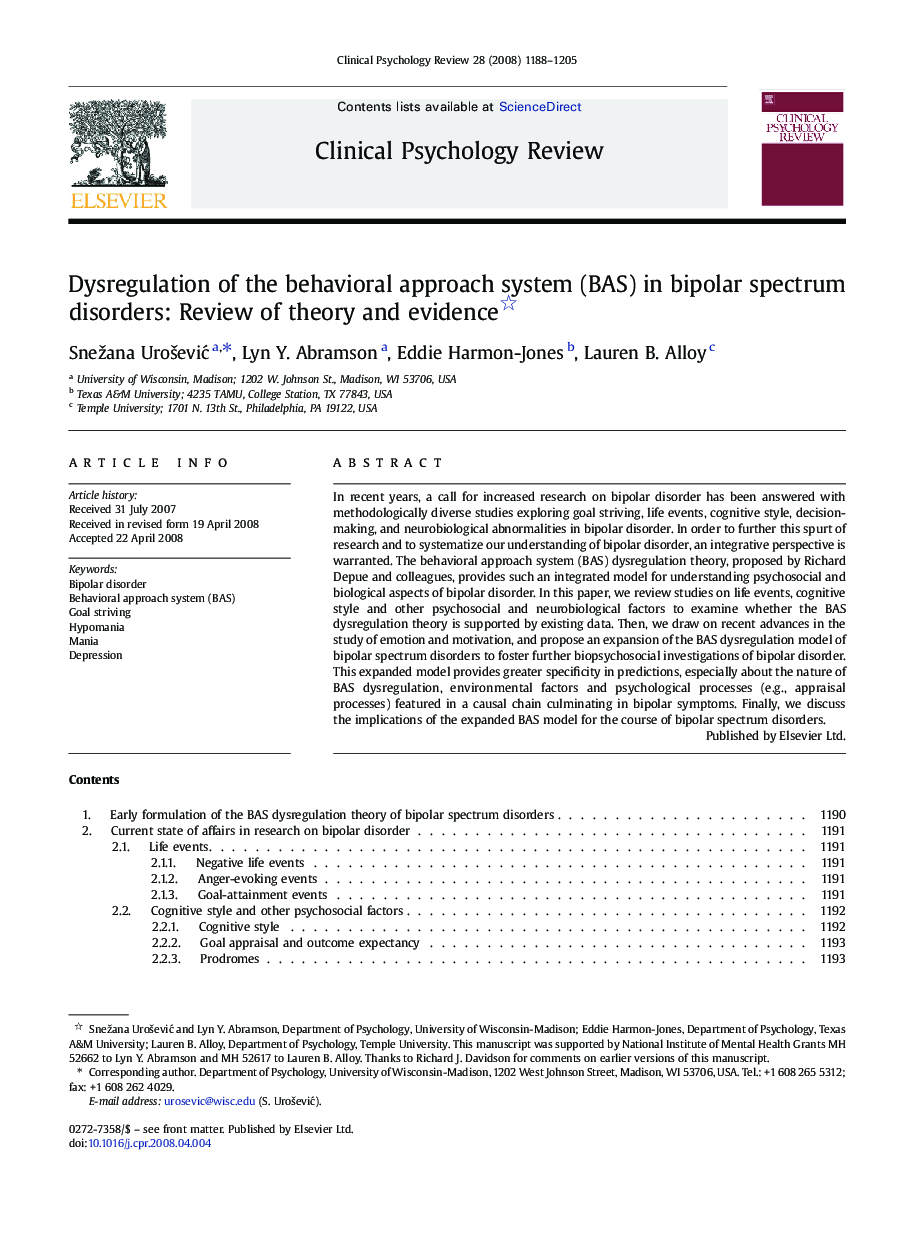| Article ID | Journal | Published Year | Pages | File Type |
|---|---|---|---|---|
| 904082 | Clinical Psychology Review | 2008 | 18 Pages |
In recent years, a call for increased research on bipolar disorder has been answered with methodologically diverse studies exploring goal striving, life events, cognitive style, decision-making, and neurobiological abnormalities in bipolar disorder. In order to further this spurt of research and to systematize our understanding of bipolar disorder, an integrative perspective is warranted. The behavioral approach system (BAS) dysregulation theory, proposed by Richard Depue and colleagues, provides such an integrated model for understanding psychosocial and biological aspects of bipolar disorder. In this paper, we review studies on life events, cognitive style and other psychosocial and neurobiological factors to examine whether the BAS dysregulation theory is supported by existing data. Then, we draw on recent advances in the study of emotion and motivation, and propose an expansion of the BAS dysregulation model of bipolar spectrum disorders to foster further biopsychosocial investigations of bipolar disorder. This expanded model provides greater specificity in predictions, especially about the nature of BAS dysregulation, environmental factors and psychological processes (e.g., appraisal processes) featured in a causal chain culminating in bipolar symptoms. Finally, we discuss the implications of the expanded BAS model for the course of bipolar spectrum disorders.
